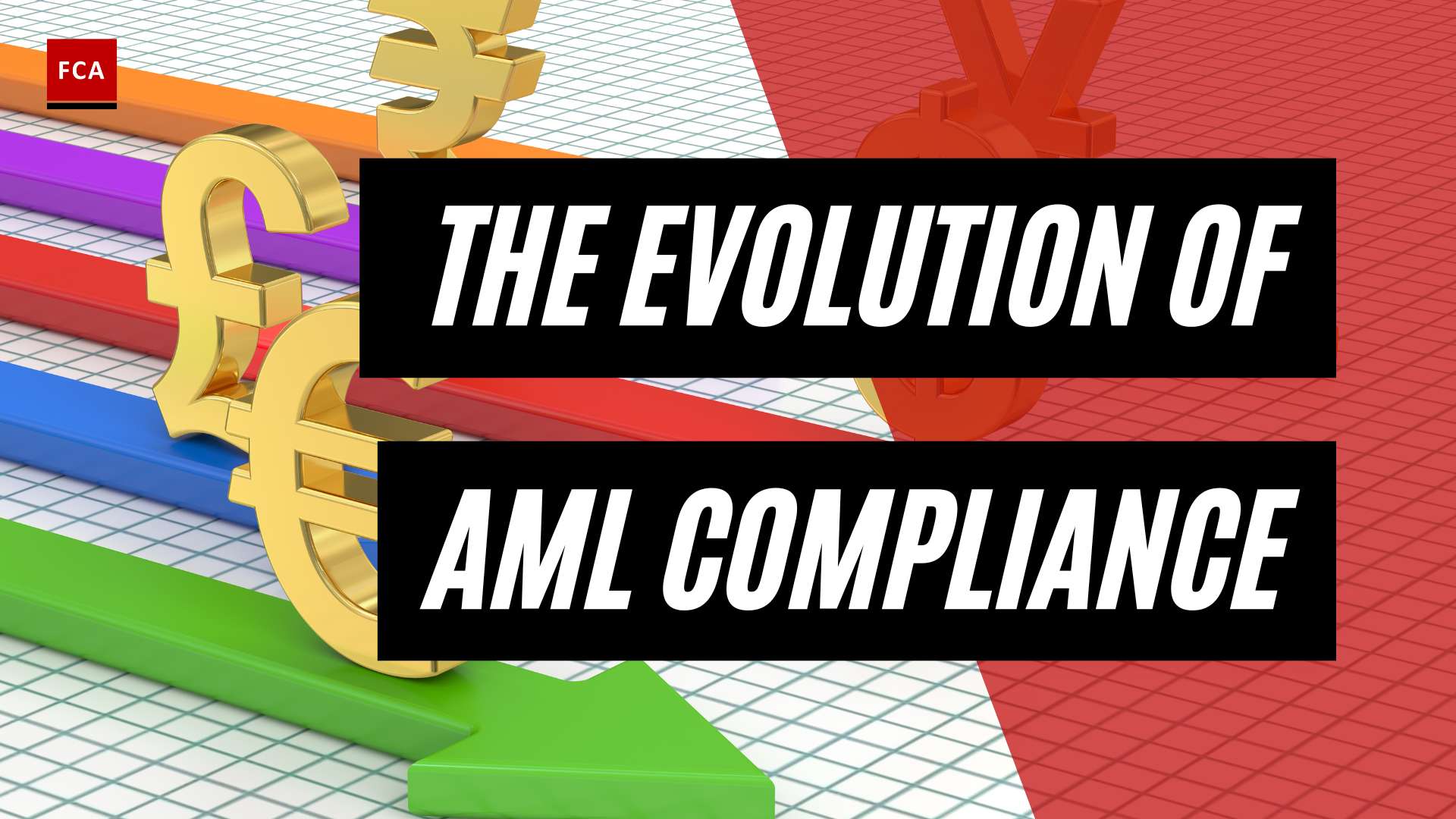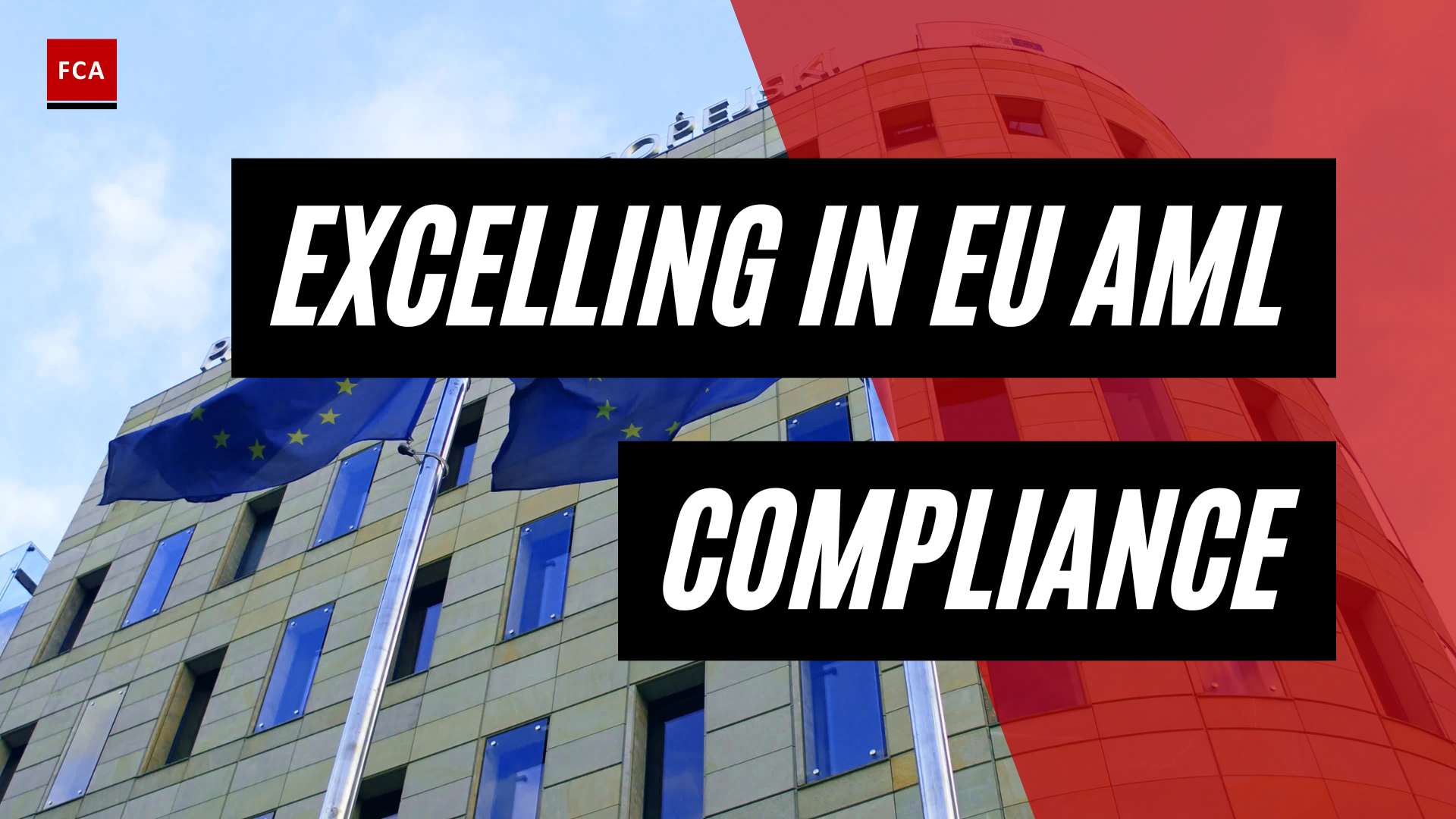AML Training: E-Learning and Digital Tools
In the world of anti-money laundering (AML) compliance, staying up to date with regulatory requirements and best practices is paramount. AML compliance training plays a crucial role in equipping professionals with the knowledge and skills to detect and prevent money laundering and financial crimes. With the advancements in technology, e-learning and digital tools have emerged as effective platforms for delivering AML training.
Importance of AML Compliance Training
The importance of AML compliance training cannot be overstated. Financial institutions and organizations are subject to increasing fines and sanctions for AML violations. In 2019 alone, financial institutions faced penalties totaling $8.9 billion for AML breaches (Financial Crime Academy). To avoid such penalties and reputational damage, companies must ensure that their employees receive comprehensive AML training.
AML compliance training serves multiple purposes. It educates employees about the various aspects of money laundering, including the techniques used by criminals and the red flags to watch out for. It also familiarizes them with the legal and regulatory frameworks that govern AML compliance. By providing employees with the necessary knowledge and skills, organizations can create a culture of compliance and reduce the risk of AML violations.
Benefits of Online AML Training
Online AML training programs offer several benefits compared to traditional classroom-based training. These benefits have made online training increasingly popular among organizations seeking effective and efficient ways to meet their compliance training needs.
1. Accessibility and Flexibility
One of the key advantages of online AML training is its accessibility and flexibility. With e-learning platforms, employees can access training materials and modules remotely, at their convenience. This eliminates the need for scheduling in-person training sessions, allowing employees to learn at their own pace and fit training into their busy schedules. Additionally, remote accessibility enables organizations to provide training to employees across different locations, ensuring consistent compliance standards throughout the company.
2. Tailored Training for Specific Roles
Different job roles within a financial institution have varying levels of exposure to AML risks. Online AML training programs can be customized to target specific roles, ensuring that employees receive training that is relevant to their responsibilities. For example, training modules can focus on the specific AML risks faced by accountants, customer-facing employees, or compliance officers. By tailoring training to specific roles, organizations can provide targeted and impactful education to their employees.
3. Ongoing Training for Regulatory Compliance
AML compliance is not a one-time event; it requires ongoing vigilance and adaptation to changing regulations and emerging threats. Online AML training programs facilitate the delivery of continuous training and refresher courses. By providing regular updates and addressing new regulatory requirements, organizations can ensure that their employees stay abreast of the latest AML compliance practices. Furthermore, analytics and reporting tools available in online training platforms enable organizations to track employee participation and measure the effectiveness of the training programs.
In conclusion, AML compliance training is essential for organizations to mitigate the risks of money laundering and financial crimes. Online AML training offers numerous benefits, including accessibility, flexibility, tailored training, and the ability to provide ongoing education. By embracing e-learning and digital tools, companies can empower their compliance journey and equip their employees with the knowledge and skills needed to maintain regulatory compliance.
To explore specific online AML training programs and platforms, continue reading the next section on Online AML Training Programs.
Online AML Training Programs
To meet the growing demand for convenient and accessible AML compliance training, various online programs have emerged. These programs provide professionals in compliance, risk management, anti-money laundering, and anti-financial crime with the opportunity to enhance their knowledge and skills in a flexible and self-paced manner. Let’s explore a few popular online AML training programs:
AML Foundations Course
This course covers critical components of anti-money laundering compliance at an introductory level, making it suitable for professionals new to the field.
The AML Foundations course provides a comprehensive overview of AML compliance, covering topics such as the global context of AML, customer risk rating, monitoring transactions, and more. It equips participants with essential knowledge and understanding of AML principles and regulations. Upon completion of the course, participants receive a certificate indicating their completion of training in AML compliance at an introductory level.
Financial Crime Academy Training Programs
The Financial Crime Academy offers a range of online AML compliance training programs designed to cater to individuals and organizations seeking high-quality, practical, and cost-effective training solutions. These programs cover a variety of topics related to AML compliance and provide participants with the knowledge and skills necessary to address the challenges of financial crime.
The AML Foundations program offered by the Financial Crime Academy is a comprehensive course that covers the basic principles, regulations, and best practices of AML compliance. It is suitable for compliance officers, analysts, and other financial professionals looking to build a solid foundation in AML. The program covers essential subjects such as anti-money laundering laws, customer due diligence, suspicious activity reporting, and managing compliance risks.
One of the key advantages of the Financial Crime Academy’s online AML training programs is the flexibility they offer. Participants can access the courses online and complete them at their own pace, making it convenient for working professionals to enhance their AML skills and knowledge. The programs are designed to provide high-quality and practical training solutions for individuals and organizations in the field of AML compliance (Financial Crime Academy).
Customizable AML Training Solutions
In addition to the specific programs mentioned above, there are customizable AML training solutions available to cater to the unique needs of organizations. These solutions allow organizations to tailor the training content to align with their specific compliance requirements and the roles of their employees. Customizable AML training ensures that employees receive training that is relevant and directly applicable to their job responsibilities.
By utilizing online AML training programs, professionals can conveniently access high-quality training materials, remain up-to-date with the latest industry regulations, and acquire the necessary knowledge and skills to effectively mitigate the risks associated with money laundering and financial crime.
Advantages of AML Training Online
In today’s digital age, AML compliance training online has become an invaluable tool for professionals working in compliance, risk management, anti-money laundering, and anti-financial crime. This section will explore the key advantages of online AML training, including accessibility and flexibility, tailored training for specific roles, and ongoing training for regulatory compliance.
Accessibility and Flexibility
One of the primary advantages of AML training online is its accessibility and flexibility. Unlike traditional classroom training, online courses allow employees to conveniently access training materials from anywhere, at any time. This flexibility eliminates the need for travel and time away from work, making it easier for individuals to fit training into their busy schedules. Employees can learn at their own pace, ensuring that they absorb the information effectively and can refer back to the materials whenever needed.
Tailored Training for Specific Roles
AML compliance training programs can be tailored to specific job roles within an organization. This ensures that employees receive training that is relevant and targeted to their responsibilities and level of risk exposure to money laundering activities. For example, different modules can be developed for employees in customer-facing roles, compliance officers, or senior management. By providing role-specific training, organizations can enhance the effectiveness and applicability of the training material, enabling employees to better understand and address the AML risks relevant to their work.
Ongoing Training for Regulatory Compliance
Regulatory requirements in the field of AML are constantly evolving. It is essential for organizations to ensure that their employees stay up-to-date with the latest trends and techniques used by criminals to launder money or finance terrorist activities. Online AML training facilitates ongoing training by allowing organizations to easily update and expand their training programs as regulations change. Regularly providing employees with updated training materials helps to reinforce knowledge, promote awareness, and maintain regulatory compliance.
By embracing AML training online, organizations can take advantage of these benefits to effectively educate their employees on AML regulations and procedures. Online training offers the flexibility and accessibility needed to reach a wide audience, while tailored modules cater to specific roles and responsibilities within the organization. Additionally, ongoing training ensures that employees stay informed about evolving AML risks and regulatory requirements.
To explore further resources on AML compliance training online, as well as professional certifications in the field, refer to our articles on aml training videos, aml training for employees, and aml training solutions.
The Cost of Non-Compliance
When it comes to Anti-Money Laundering (AML) regulations, non-compliance can have severe consequences for businesses. Failing to meet AML requirements can result in regulatory fines and penalties, as well as reputational damage. It is crucial for organizations to prioritize AML compliance training to mitigate these risks.
Regulatory Fines and Penalties
Regulators have increasingly enforced stricter AML regulations in recent years, resulting in substantial fines and penalties for non-compliant organizations. In 2019 alone, financial institutions faced an estimated $8.9 billion in penalties for AML violations. These fines can be a significant financial burden for businesses, impacting their bottom line and potentially leading to long-term financial instability.
The specific fines and penalties vary depending on the jurisdiction and the severity of the AML violations. Regulators typically consider factors such as the scale of money laundering activities, the effectiveness of an organization’s AML program, and any previous instances of non-compliance. By implementing robust AML compliance training programs, organizations can reduce the likelihood of non-compliance and mitigate the risk of facing substantial financial penalties.
Reputational Damage
In addition to financial consequences, non-compliance with AML regulations can also result in significant reputational damage for organizations. Instances of money laundering or failure to prevent money laundering can erode public trust and confidence in a company’s integrity. Reputational damage can have long-lasting effects, leading to a loss of customers, business partners, and investors.
News of non-compliance can spread rapidly through media coverage and social media platforms, tarnishing the reputation that companies have worked hard to build. Rebuilding trust and restoring a damaged reputation can be a lengthy and challenging process. By prioritizing AML compliance training and ensuring adherence to regulations, organizations can safeguard their reputation and maintain the trust of their stakeholders.
To protect themselves from the financial and reputational risks associated with non-compliance, businesses must invest in comprehensive AML compliance training programs. These programs educate employees on important topics such as customer due diligence, suspicious activity reporting, risk assessment, and compliance responsibilities (Financial Crime Academy). By equipping employees with the knowledge and skills necessary to navigate AML regulations, organizations can minimize the likelihood of non-compliance and protect their financial stability and reputation.
AML Compliance Training Platforms
To effectively meet the training needs of professionals in the field of anti-money laundering (AML) compliance, various online platforms offer comprehensive solutions. These platforms utilize digital tools and innovative technologies to deliver efficient and effective AML training. Two prominent AML compliance training platforms worth exploring are Persona: Identity Verification and Compliance and other AML compliance platforms.
Persona: Identity Verification and Compliance
Persona is an online AML compliance training platform that focuses on identity verification and compliance. It provides a range of features that enable users to securely collect identity information, automate decisions, and follow-ups throughout the identity lifecycle. By offering a configurable case management hub, Persona ensures efficient investigation and resolution of cases.
The key features of Persona include:
- Identity Verification: Persona allows users to verify IDs from over 200 countries and regions, along with other important documents such as business registrations and proof of income. It also offers protection against identity spoofing through selfie comparisons.
- Data Access: Persona provides users with access to authoritative databases and issuing sources from more than 40 countries. This ensures the verification of ownership through two-factor authentication (2FA) and phone carrier matches. Additionally, it securely verifies mobile driver’s licenses (mDLs) from digital wallets.
- Screening and Compliance: Persona enables users to screen against over 100 global sanction and warning lists, more than 5,000 politically exposed person (PEP) lists, and automates negative news checks across millions of articles. This comprehensive approach ensures compliance with global regulations.
By leveraging Persona, organizations can integrate trust and safety into every user touchpoint, automate compliance operations, and effectively catch, investigate, and prevent fraud. This platform plays a crucial role in ensuring regulatory compliance and user safety.
Other AML Compliance Platforms
In addition to Persona, there are other AML compliance platforms available in the market. These platforms offer a variety of training solutions, including e-learning modules, webinars, and software applications designed specifically for AML compliance training. These platforms provide comprehensive resources to enhance knowledge and skills related to AML compliance.
Some of the features and benefits offered by other AML compliance platforms include:
- E-Learning Modules: Online AML training programs that utilize e-learning modules to deliver interactive and engaging training content. These modules cover various aspects of AML compliance, including regulations, risk management, and detection of suspicious activities.
- Webinars: AML training webinars that feature industry experts discussing the latest trends, best practices, and case studies in AML compliance. These webinars offer professionals an opportunity to enhance their knowledge and stay updated with the evolving landscape of AML.
- Software Applications: AML training software that provides organizations with customizable training solutions tailored to their specific needs. These applications offer features such as tracking employee progress, conducting assessments, and generating reports to ensure effective compliance training.
By utilizing these AML compliance platforms, professionals working in compliance, risk management, anti-money laundering, and anti-financial crime can enhance their knowledge and skills, stay updated with regulatory requirements, and contribute to a culture of compliance within their organizations.
In conclusion, AML compliance training platforms such as Persona and other AML compliance platforms offer professionals in the field comprehensive and innovative solutions for effective AML training. These platforms utilize digital tools and technologies to deliver accessible, tailored, and ongoing training, ensuring regulatory compliance and mitigating the risks associated with non-compliance.
Professional Certifications in AML
For professionals working in compliance, risk management, anti-money laundering (AML), and anti-financial crime, obtaining professional certifications in AML is essential to demonstrate expertise and enhance career prospects. Here are three prominent certifications in the field of AML:
The Role of Code Blocks in AML Training
In the realm of AML (Anti-Money Laundering) compliance training, code blocks play a significant role in enhancing the learning experience. Code blocks offer syntax highlighting, enabling clear presentation of code snippets, logs, error messages, and any other text that benefits from distinct visual representation. This functionality is particularly valuable in online teaching environments, where precise coding examples are crucial for effective AML compliance training programs.
Syntax Highlighting for Clear Presentation
Syntax highlighting is a feature that provides distinct colors and formatting to different elements of code within a code block. It helps learners easily identify and differentiate between keywords, variables, strings, comments, and other components of the code. With syntax highlighting, code becomes more organized and readable, contributing to a better understanding of AML compliance concepts and practices.
GitHub, a widely used platform for code hosting and collaboration, supports over 400 programming languages for syntax highlighting in code blocks. This versatility makes GitHub an ideal platform for developers and coders in various fields, including AML compliance training.
Use of Code Blocks in Online Teaching
Code blocks serve as a powerful tool for online teaching in AML compliance training. They can be utilized to demonstrate code snippets, showcase logs or error messages, and provide step-by-step instructions for executing specific tasks. By incorporating code blocks within the training materials, trainers can offer learners a hands-on experience, enabling them to practice and apply their knowledge in a controlled environment.
Moreover, code blocks can be included within a list item, allowing for a more structured presentation of code examples. By indenting the code block by four spaces, trainers can seamlessly integrate code snippets into their instructional content (GitHub).
In the context of AML compliance training, code blocks can be used to demonstrate the implementation of regulatory requirements, such as data validation, risk assessment algorithms, or transaction monitoring procedures. These examples help learners grasp the practical aspects of AML compliance and understand how to apply coding techniques to real-world scenarios.
By leveraging code blocks with syntax highlighting, AML compliance training programs can enhance the learning experience and promote a deeper understanding of complex concepts. The visual clarity and organization provided by code blocks contribute to a more effective transfer of knowledge, ensuring that professionals in compliance, risk management, anti-money laundering, and anti-financial crime can acquire the necessary skills and expertise to navigate the evolving landscape of AML compliance.
Online AML Training Programs
To meet the growing demand for AML compliance training online, various training programs have emerged, providing professionals with the necessary knowledge and skills to navigate the complex world of anti-money laundering. These online programs offer flexibility, accessibility, and tailored training to meet the specific needs of individuals and organizations.
AML Foundations Course
One prominent online AML training program is the AML Foundations course offered by FCA. This comprehensive course covers critical components of anti-money laundering compliance at an introductory level. It includes three modules that cover topics such as the global context of AML, customer risk rating, monitoring transactions, and more, providing participants with a comprehensive overview of AML compliance.. The estimated completion time for the course is 10 hours.
The AML Foundations course is designed for professionals involved in the AML sector at an entry-level, including new analysts, specialists, consultants, and other personnel new to the field. Upon completion of the course, participants receive a certificate indicating they have completed the training in AML compliance at an introductory level.
Financial Crime Academy Training Programs
The Financial Crime Academy offers a variety of online AML training programs tailored to the specific needs of professionals in the compliance, risk management, and anti-financial crime fields. These programs aim to provide a comprehensive understanding of AML regulations, best practices, and emerging trends.
Customizable AML Training Solutions
In addition to standardized online AML training programs, organizations also have the option to customize training solutions to target specific job roles within their financial institution. This approach ensures that employees receive training that is relevant to their responsibilities and areas of risk exposure.
By customizing AML training programs, companies can address the unique challenges they face and ensure that employees are well-versed in compliance procedures. The ability to track employee participation and measure the effectiveness of training through analytics and reporting tools is a significant benefit for companies seeking to maintain a culture of compliance (Financial Crime Academy).
With the increasing fines and sanctions imposed on financial institutions for AML violations, investing in online AML training programs has become a necessity. These programs offer the flexibility of remote access and self-paced learning, enabling employees to access training at their convenience while ensuring compliance with regulatory requirements (Financial Crime Academy).
By embracing AML compliance training online, professionals in the compliance, risk management, anti-money laundering, and anti-financial crime fields can enhance their knowledge, stay up-to-date with regulatory changes, and contribute to the fight against financial crime.








